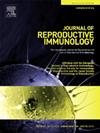Impact of the maternal microbiome on neonatal immune development
IF 2.9
3区 医学
Q3 IMMUNOLOGY
引用次数: 0
Abstract
Historically, multigenerational health and disease transmission have primarily focused on genetic inheritance. However, the discovery that beneficial microorganisms known as commensal microbiota outnumber human genes tenfold has reshaped this perspective, highlighting their critical role in maintaining homeostasis and protecting against pathogens. Unlike the human genome, commensal microbiota is not genetically inherited but is acquired anew with each generation. with initial gut colonization playing a pivotal role in shaping an infant's immune system, neurodevelopment, and long-term health, all heavily influenced by maternal factors. In this review, we examine emerging research on maternal microbial influences on the fetus beginning in utero. We provide an updated overview of the current insights into the impact of the vaginal microbiome during parturition on offspring immunity and discuss the potential long-term health implications for infants born via cesarean section. We explore the advantages and limitations of techniques designed to mitigate these effects, such as vaginal seeding and emphasize that the development of the neonatal immune system is a dynamic process influenced by maternal factors beyond birth, including the transfer of microbiota through breast milk and skin contact. Finally, we present gaps in current research and propose future research directions to deepen our understanding of the impacts of the maternal microbiome on her child. Together, these insights demonstrate how maternal influence on offspring health and immunity extends beyond genetic factors, encompassing the transmission of microbiota, which, in turn, has profound long-term implications for health and disease resilience, offering a novel perspective on intergenerational health dynamics.
母体微生物组对新生儿免疫发育的影响
从历史上看,多代健康和疾病传播主要集中在基因遗传上。然而,被称为共生微生物群的有益微生物数量超过人类基因十倍的发现重塑了这一观点,强调了它们在维持体内平衡和保护病原体方面的关键作用。与人类基因组不同,共生菌群不是遗传的,而是每一代都获得新的。最初的肠道定植在塑造婴儿的免疫系统、神经发育和长期健康方面起着关键作用,这些都受到母体因素的严重影响。在这篇综述中,我们研究了母体微生物对胎儿从子宫开始的影响的新研究。我们对分娩时阴道微生物组对后代免疫影响的最新见解进行了概述,并讨论了剖宫产对婴儿的潜在长期健康影响。我们探讨了旨在减轻这些影响的技术的优点和局限性,如阴道播种,并强调新生儿免疫系统的发育是一个受出生以外的母体因素影响的动态过程,包括通过母乳和皮肤接触转移微生物群。最后,我们指出了目前研究的不足之处,并提出了未来的研究方向,以加深我们对母亲微生物组对孩子影响的理解。总之,这些见解表明,母亲对后代健康和免疫的影响如何超越遗传因素,包括微生物群的传播,而微生物群的传播反过来又对健康和疾病抵御能力具有深远的长期影响,为研究代际健康动态提供了新的视角。
本文章由计算机程序翻译,如有差异,请以英文原文为准。
求助全文
约1分钟内获得全文
求助全文
来源期刊
CiteScore
6.30
自引率
5.90%
发文量
162
审稿时长
10.6 weeks
期刊介绍:
Affiliated with the European Society of Reproductive Immunology and with the International Society for Immunology of Reproduction
The aim of the Journal of Reproductive Immunology is to provide the critical forum for the dissemination of results from high quality research in all aspects of experimental, animal and clinical reproductive immunobiology.
This encompasses normal and pathological processes of:
* Male and Female Reproductive Tracts
* Gametogenesis and Embryogenesis
* Implantation and Placental Development
* Gestation and Parturition
* Mammary Gland and Lactation.

 求助内容:
求助内容: 应助结果提醒方式:
应助结果提醒方式:


